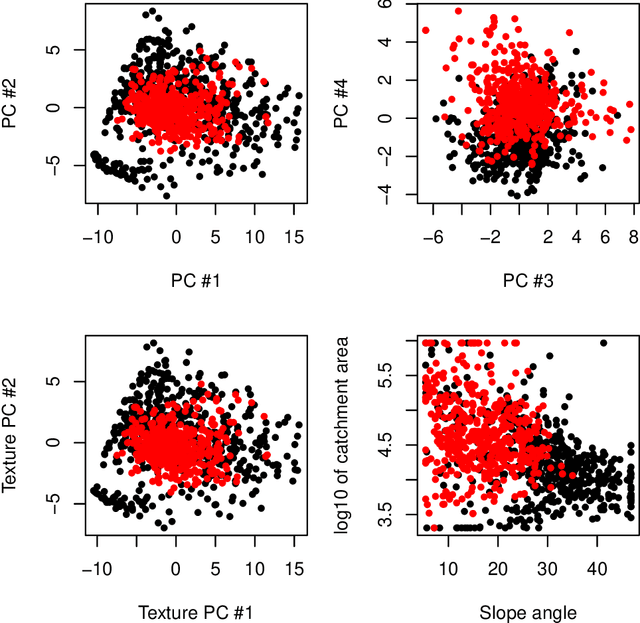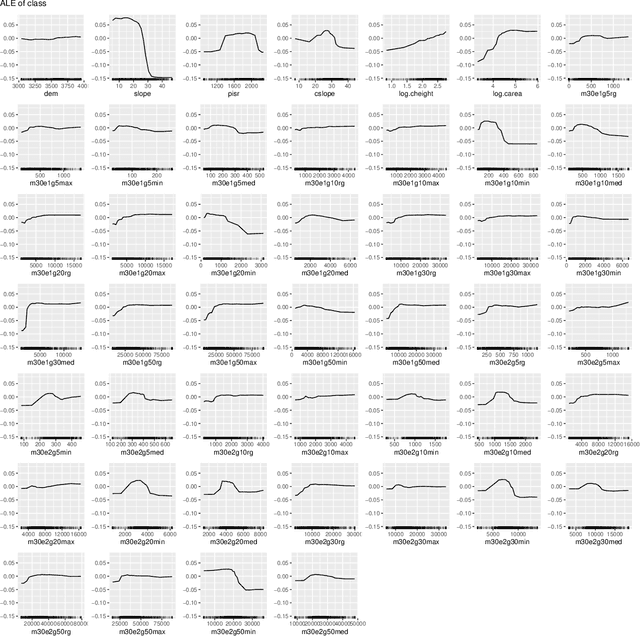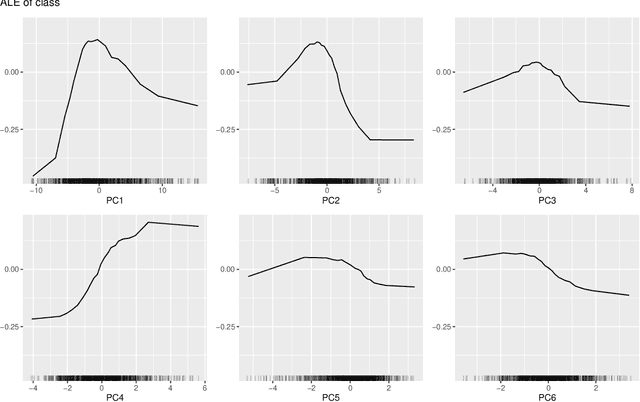Transforming Feature Space to Interpret Machine Learning Models
Paper and Code
Apr 09, 2021



Model-agnostic tools for interpreting machine-learning models struggle to summarize the joint effects of strongly dependent features in high-dimensional feature spaces, which play an important role in pattern recognition, for example in remote sensing of landcover. This contribution proposes a novel approach that interprets machine-learning models through the lens of feature space transformations. It can be used to enhance unconditional as well as conditional post-hoc diagnostic tools including partial dependence plots, accumulated local effects plots, or permutation feature importance assessments. While the approach can also be applied to nonlinear transformations, we focus on linear ones, including principal component analysis (PCA) and a partial orthogonalization technique. Structured PCA and diagnostics along paths offer opportunities for representing domain knowledge. The new approach is implemented in the R package `wiml`, which can be combined with existing explainable machine-learning packages. A case study on remote-sensing landcover classification with 46 features is used to demonstrate the potential of the proposed approach for model interpretation by domain experts.
 Add to Chrome
Add to Chrome Add to Firefox
Add to Firefox Add to Edge
Add to Edge